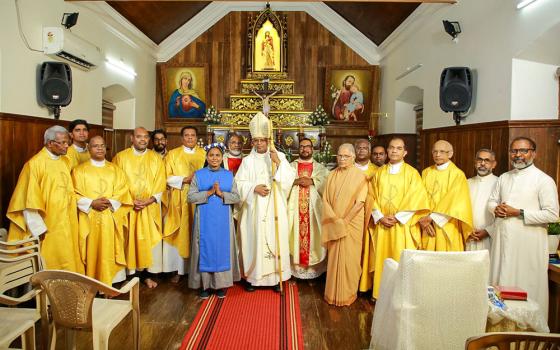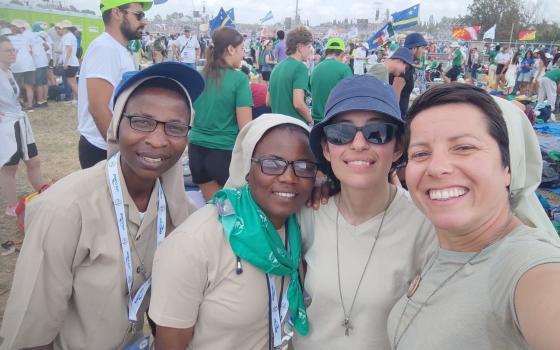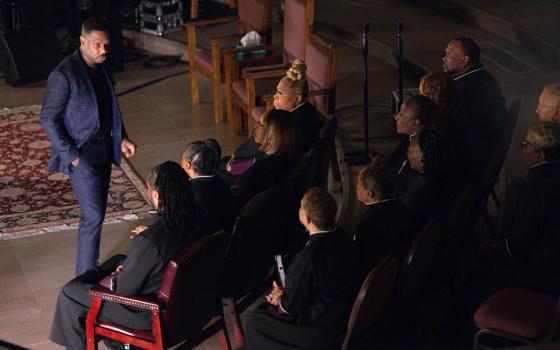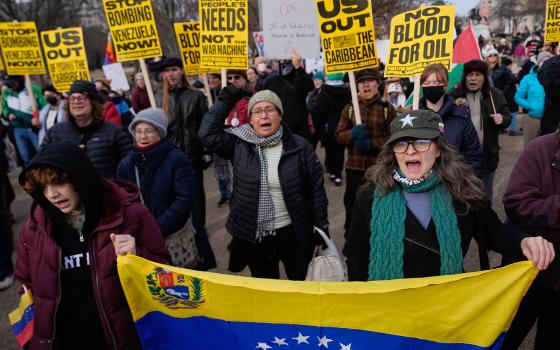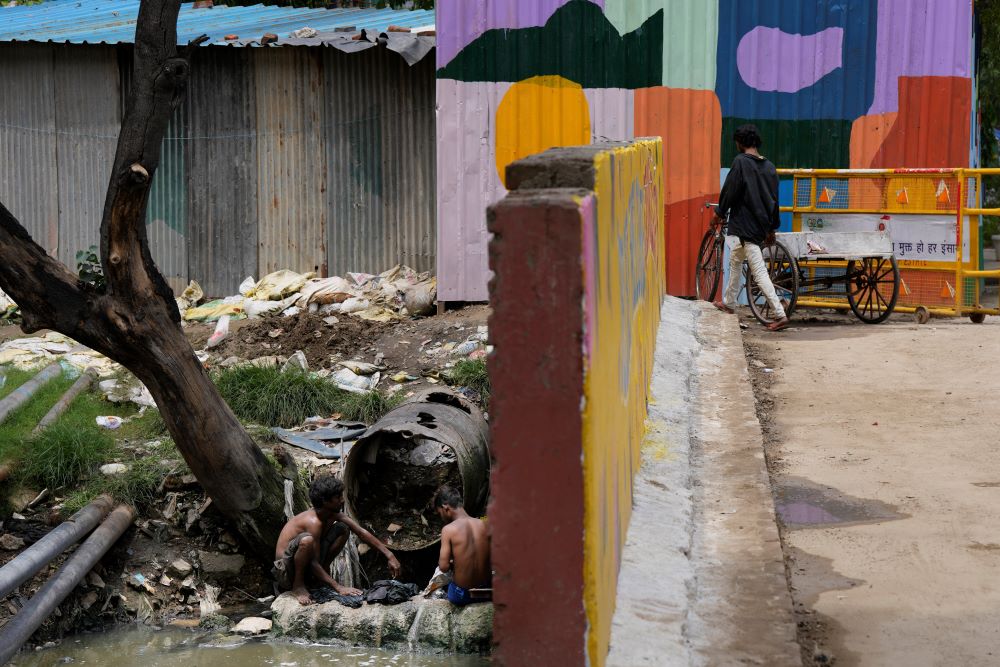
Laborers wash their clothes in sewage water under a bridge in New Delhi, India, on Aug. 24. (AP/Manish Swarup)
Some time ago, I encountered a group of foreign visitors who had just come back after touring a metropolitan city in India. They shared how enchanting some places were and were in full praise of the magnificent heritage buildings of that sight. But they were also much disturbed and pained to see the misery of the poor! They found it difficult to see homeless people sleeping by the roadside at night, beggars of different ages at traffic signals and on streets, women and children scavenging around waste bins, elderly people starving on pavements, rag pickers on landfills, etc.
What they asked me next shook me from the inside: "Aren't you disturbed by these?"
I asked myself how and when I became numb to these realities. How did we get so used to such pitiable sights? Maybe one's own "social privileges" blinds one! In our land, excessive commercialization, commodification and politicization have "made" the poor a mere product that can be dispensed with. They would have been done away with already but for the vote bank (voting bloc) value that they hold and for the menial works that the rich wouldn't like to do themselves.
Above all, I believe what holds us back from being associated with the poor is "aporophobia," largely unknown as a concept but a reality for long. Aporophobia is the fear of the poor and therefore rejection of the poor. Spanish philosopher Adela Cortina, who coined this term, explains that the biggest problem in the world today is aporophobia. There is a systemic rejection of the poor and a disgusting attitude toward poverty and people without resources.
In my view, there are two kinds of poor, and both face rejection. The first kind is the materially poor, such as beggars, migrant workers, urban slum dwellers, fleeing refugees, etc. The second kind are the socially poor such as the uneducated, indifferent youth, people with disabilities, people deprived of liberty, so-called lower castes, divorced and remarried, single mothers, elderly and infirm, people with HIV, people with addictions, LGBTQIA+ people, etc. They are not only excluded, stigmatized and humiliated, but also labeled and stereotyped.
According to Cortina, there is a daily invisible attack on the poor not because they are individuals, but because they belong to the group called "poor." In India, such constant attacks on the "resourceless" communities take place systemically and systematically, furthering their social exclusion. For instance, the Dalits, termed as so-called low caste in India, are deprived of their basic human rights to such an extent that they are pushed to the peripheries and rendered powerless.
Neither law enforcement nor social appeals can put a complete end to these exclusions. What we now need is an alteration of social belief systems. This can happen only by encountering the rejected other. A classic example of this encounter is of Gautama Siddhartha, who later became the Buddha. As a young prince, he was kept away from any pain or suffering, but when he encountered poverty, sickness and death, he underwent a transformation.
Advertisement
Encounters with the actual suffering of the masses have power not only for individual conversion but also potentially become the cause of social transformation. I still remember the positive impact such encounters had on me in my childhood days when our elders accepted the poor and were benevolent toward them.
Today, such encounters are still possible if we truly begin to value hospitality. It is a proactive response to the rejection that the poor face. In an endowment lecture in Philadelphia titled "Will Welcome Work," Jesuit Fr. Robin Seelan explains that hospitality is about crossing thresholds of boundaries established between villages, towns, cities, states and nations. It implies letting the other into one's own space. At times, this letting in can be considered invasive, but can also result in an encounter where there is mutual growth and creative exchange of culture, ideas, belief-systems and love.
We have been taught that the poor have nothing to offer. True hospitality, however, is a privilege of interacting with the poor, and considering them as carriers of gifts. The Abraham-angel event is an instance of such true hospitality, wherein the guests who arrived at Abraham's tent had no worldly resources to offer but had something more valuable: their blessings. Their presence affected Abraham. This is "co-presence," the idea that the presence of other actors shapes individual behavior. Hospitality is, thus, a co-presence, in which the presence of the poor affects and enriches our existence as well.
This mutual enrichment can be a fitting response to rising intolerance, poverty, isolation, exclusion, alienation and displacement. Hospitality will help one to embrace diversity, acknowledge differences and offer solace to those who are now at the mercy of others. Educating oneself to be hospitable is a moral imperative for each of us.
It requires shaking off self-absorption tendencies and realizing interdependence on one another, thus taking responsibility for each other's welfare. This is reiterated by H. Richard Niebuhr, in The Responsible Self, where he considered human beings as always being "in response" to the world around them.
This response to the other can further be reinforced if one recalls the famous maxim of St. Benedict, "Hospesvenit, Christus venit" ("When a guest comes, Christ comes"). What more can we then say of our Christian spirituality? It is hospitality that brings in co-presence! And especially when done without succumbing to aporophobia!

